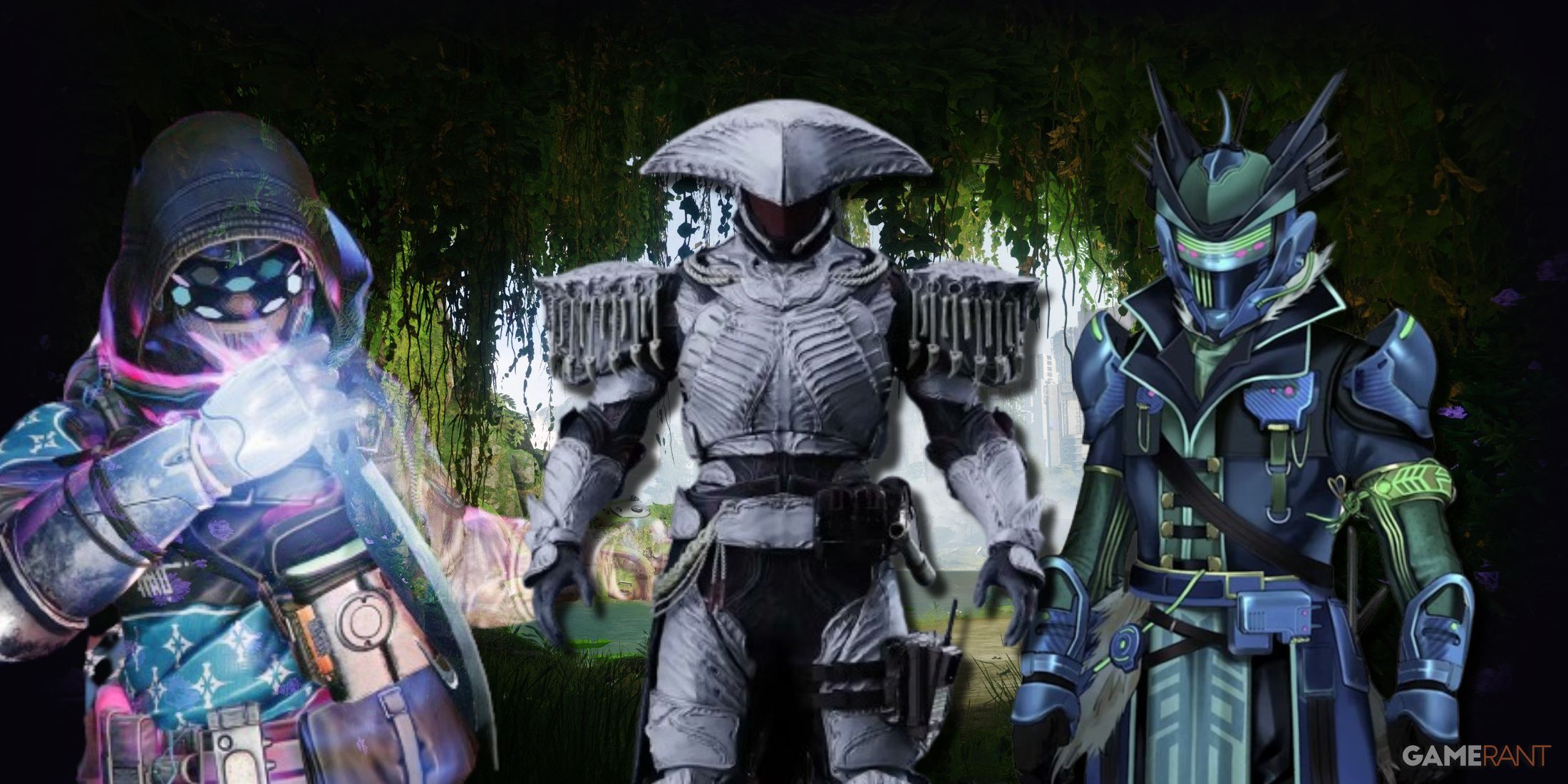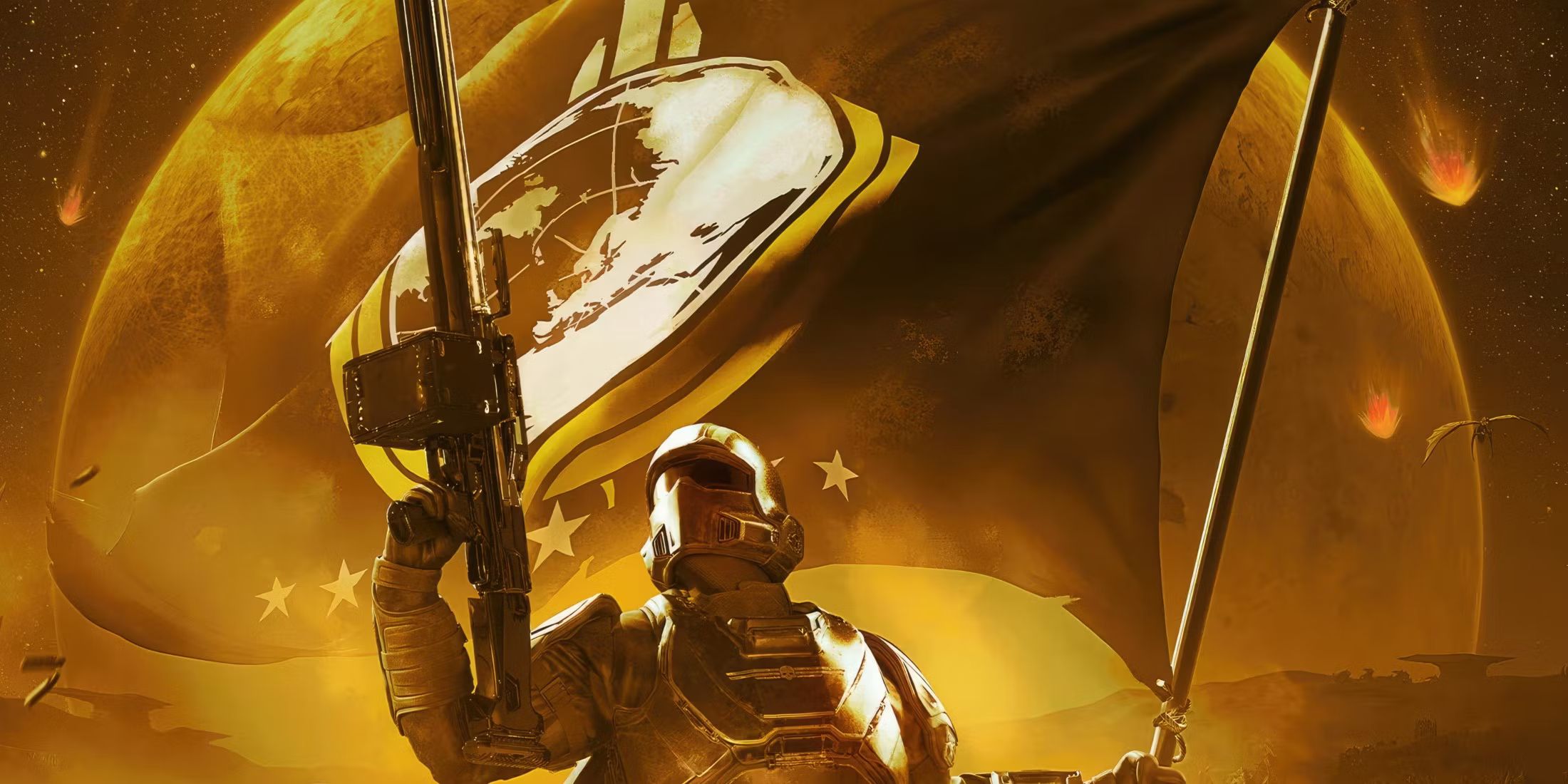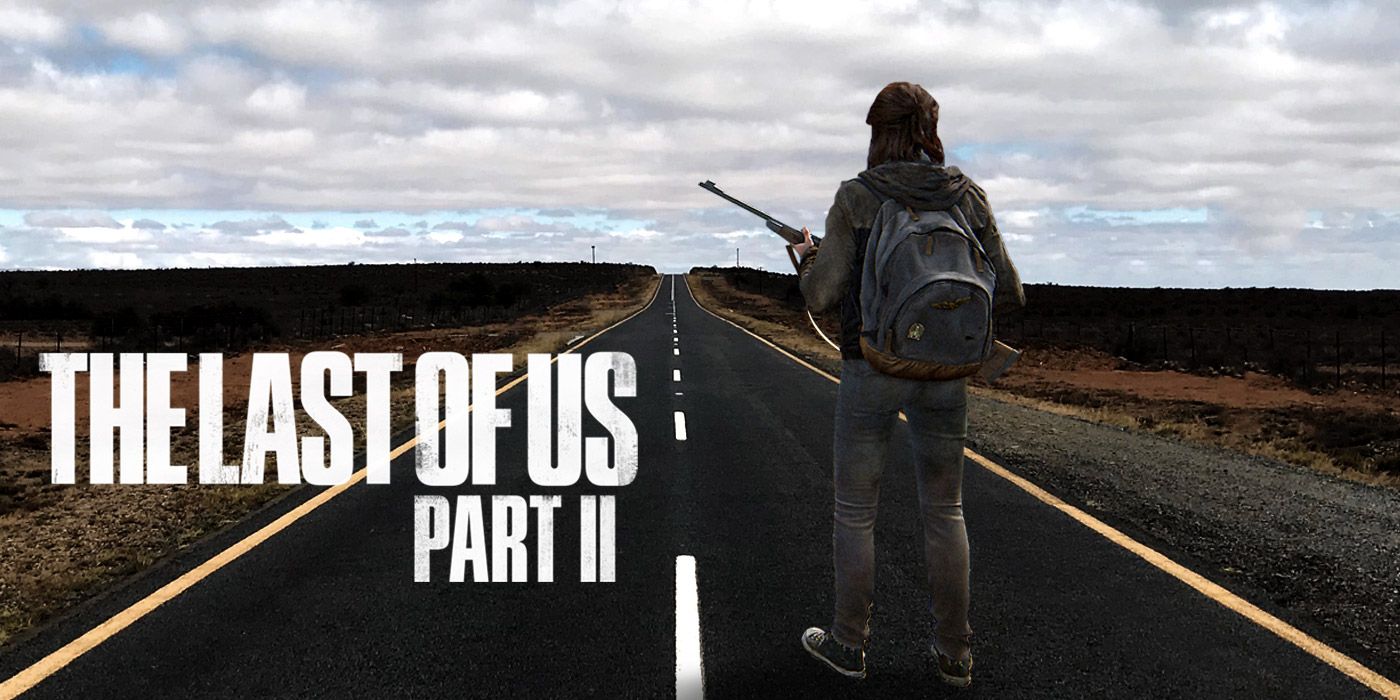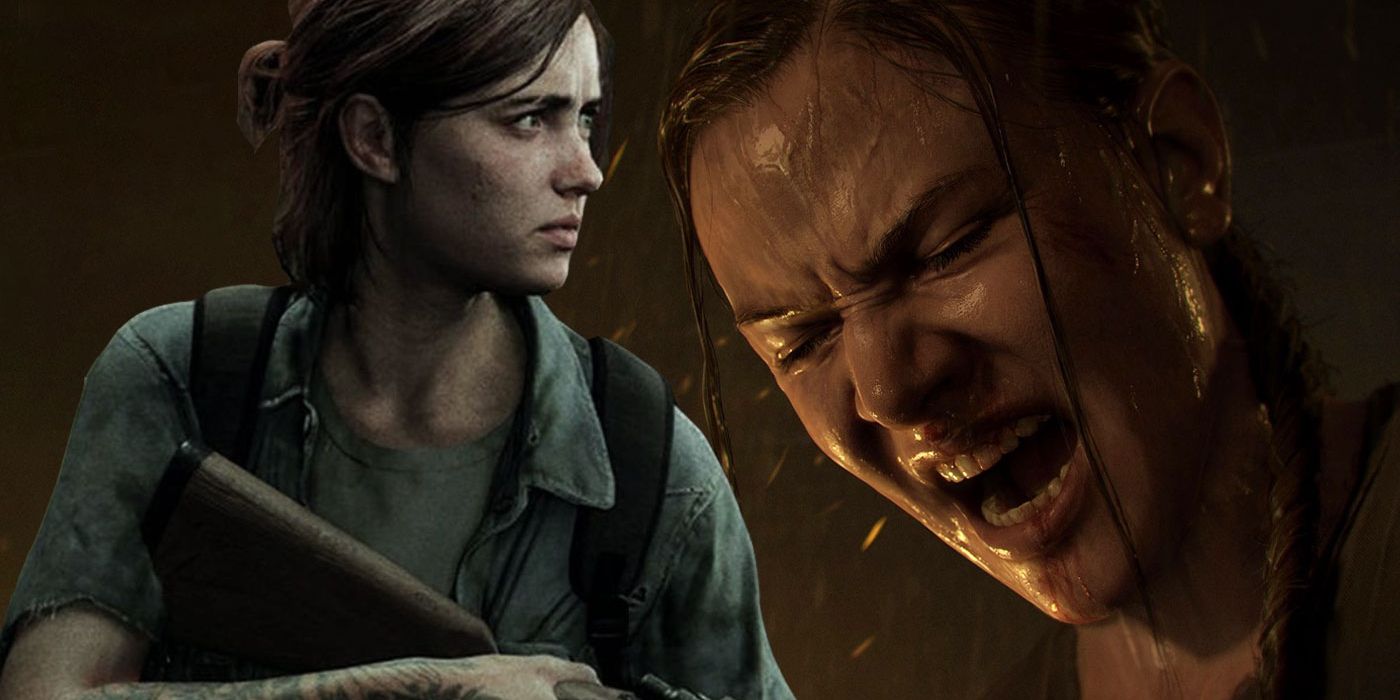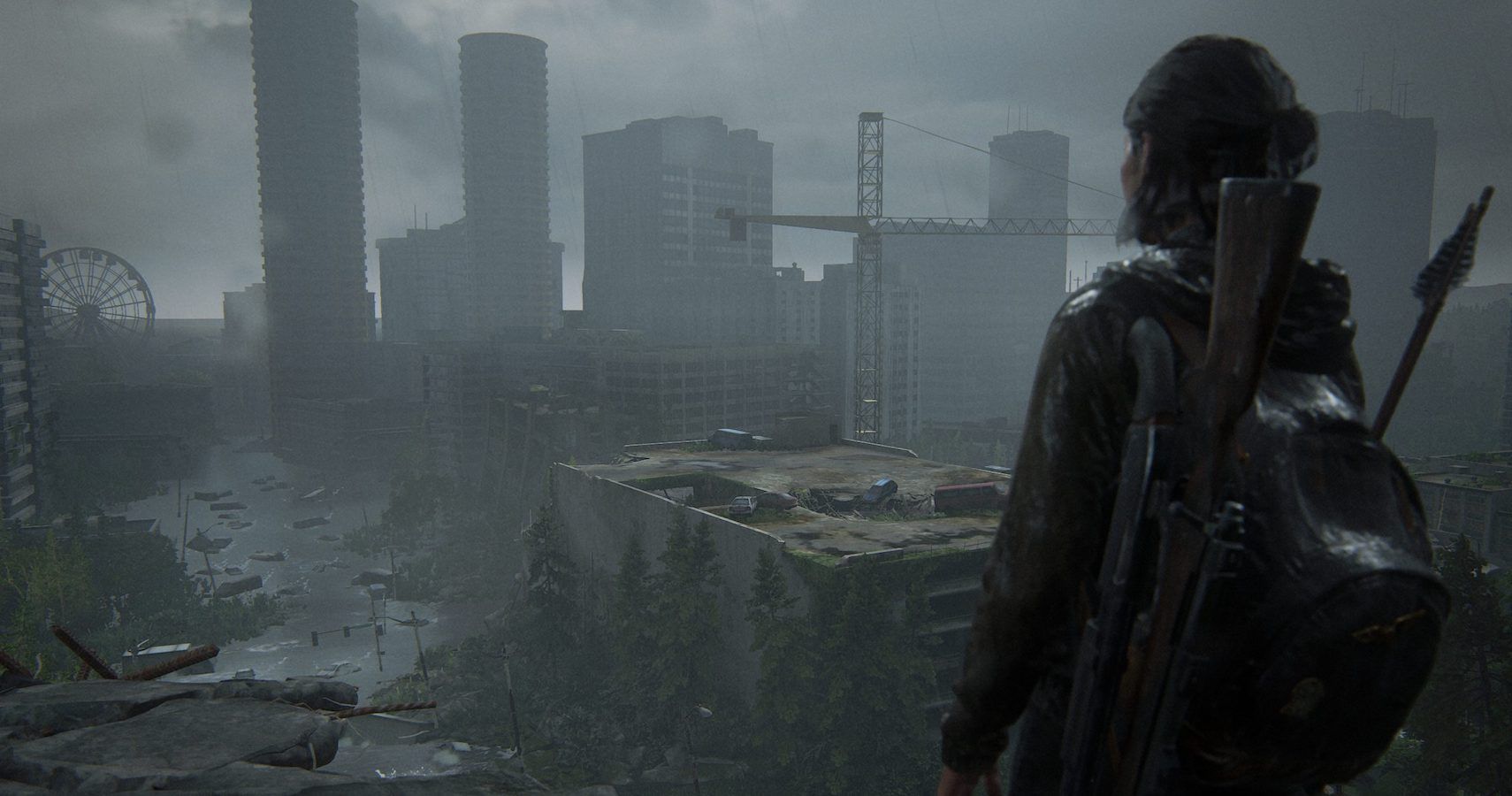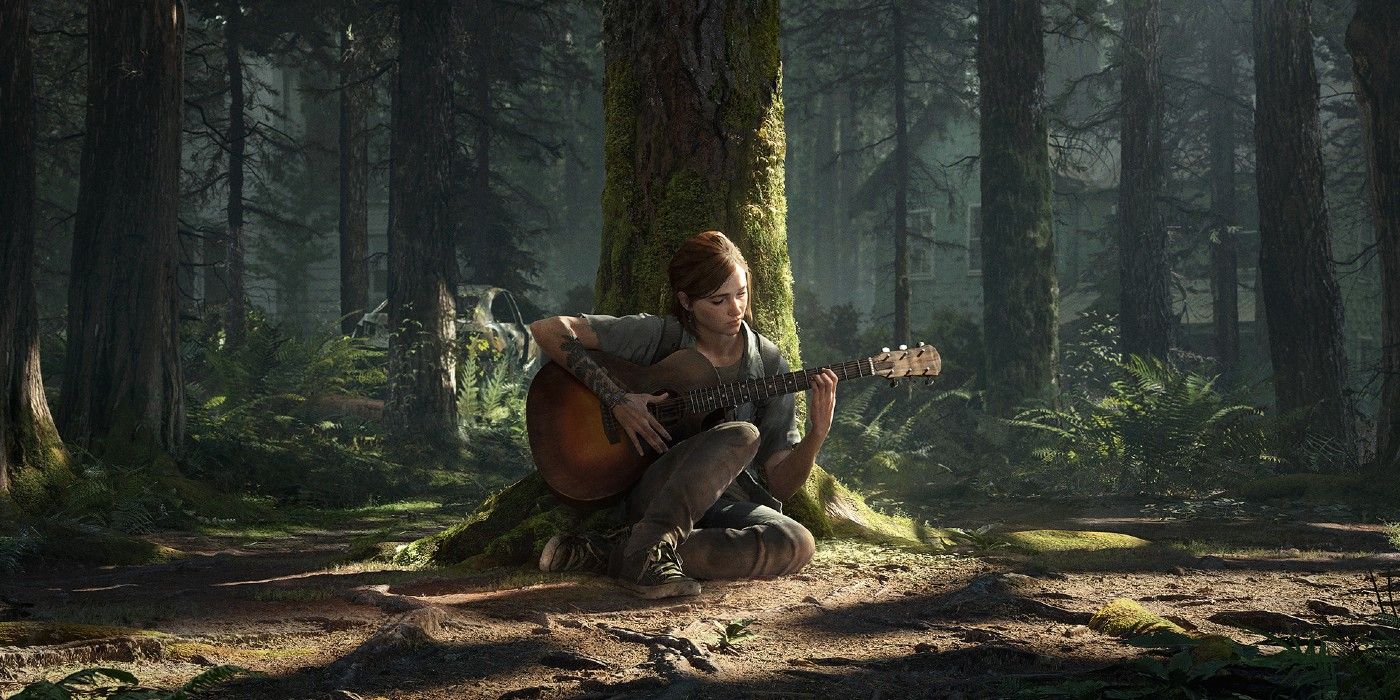Ellie and Abby's story in The Last of Us 2 has a lot to say during its 20 or so hour runtime. From both perspectives, each character strives for vengeance with quite literally every bone in their body. Even at the end of both characters' respective journeys, neither really gets their closure, even though the two escape cycles of violence that they both initiated in their own ways. Whether it was indirectly with Joel and Ellie leaving the Fireflies' hospital, or directly with Abby enacting her revenge on Joel, neither is really relieved by any means.
Yet, after the whole experience with the game is finally over, it's hard not to feel the game lives up to the adage of "long journey, short road" in both positive and negative ways. The majority of The Last of Us 2 takes place over four days, and yet somehow the game feels like it takes even longer to get through than the first game does. For reference, the first The Last of Us game takes place over practically a whole year, spanning several months and several seasons. That feeling of length comes from a long, drawn out feeling of dread that's pervasive throughout the whole experience that isn't necessarily justified in its presentation in a lot of ways.
Ellie and Abby's Lingering Wills in The Last of Us 2
In a lot of ways, a fresh playthrough of The Last of Us 2 has several elements injected in the game's narrative to subvert expectations over time. Joel's death within the first several hours of the game, the purposefully jarring swap from Ellie to Abby a third of the way through the game's story, among other narrative events at the game's climax; these decisions all come together to surprise the player. Whether or not the game's story decisions sit well with players is up to interpretation, but these jumps in narrative pacing are clearly coming together to make the experience seem arduously long. Playing The Last of Us 2 is not meant to be an inherently pleasant experience.
It's also worth noting that the "long story, short road" saying is also applied very literally in the game's setting. In a clearly purposeful way, The Last of Us 2 continues to expand further as the journey continues. Even at times when players may think the game is coming to an end, a key moment in the story pushes the narrative even further. As mentioned before, much of the game takes place in the span of four days, which players witness from dueling perspectives one after the other. The game also spends a significant amount of time in Jackson and Santa Barbara, but even then there's only months of off-screen time separating these in-game locations.
The Last of Us 2's Purposefully Frustrating Narrative Pacing
There's a pervasive feeling of ever-longing dread imprinted on players as they maneuver through The Last of Us 2's journey. Players know what the end goal is for both characters, but it's almost as if the game uses the journey in between to try to steer both characters away. It's made abundantly clear that a clash between Ellie and Abby is meant to happen, and that certainly does come true more than once, but not after characters like Dina and Lev are trying to tear the two protagonists away. It's hard to say who's learned their lesson by the end of the game; Abby gets revenge on her father's death but never for her friends, and Ellie's revenge is never satiated at all.
All this time spent with Ellie and Abby culminates in an ultimate showdown twice throughout the game's story, and both times it doesn't end well for anyone. There's never a sense of closure from the whole experience, and that's frustrating. While this particular sentiment may be up to an individual's interpretation, it's clear Naughty Dog wants players to feel this frustration on purpose. On the one hand, the narrative of The Last of Us 2 is attempting to make a point about how violence begets violence and that revenge is a fruitless endeavor. On the other hand, The Last of Us 2's journey never has a chance to hammer that point home contextually, which leads to opinions like "I wasted my time" among other sentiments of unfulfillment.
A Meandering Dread Worthy of Debate
Whether or not players agree that this narrative approach proves valuable is up for debate, but the rollercoaster of emotions that's meant to be evoked by The Last of Us 2 happens over such a short period of time. If there's any consensus that can be found from the game's narrative, it's that The Last of Us 2's storyline lingers for an uncomfortably long amount of time. Four pivotal days, and a few months time in between the majority of the game's story, and yet The Last of Us 2 tackles an array of conflicts within that time.
The pacing is irregular, and swapping from Ellie to Abby, and then back to Ellie adds an element of absence from both characters that feels dreadfully long. Even though 20-25 hours is still very long for a largely linear, sandbox-like single-player game, The Last of Us 2 definitely aligns itself with the "long journey, short road" mantra. Arguably the gameplay does just as much work to evoke that feeling as well, even though it's more of a refined version of the first game's survival horror combat that wasn't expected to change so drastically. The Last of Us 2's narrative meanders in an artfully frustrating manner, to great intended effect, despite the game's split reception.
The Last of Us 2 is available now on PS4.


